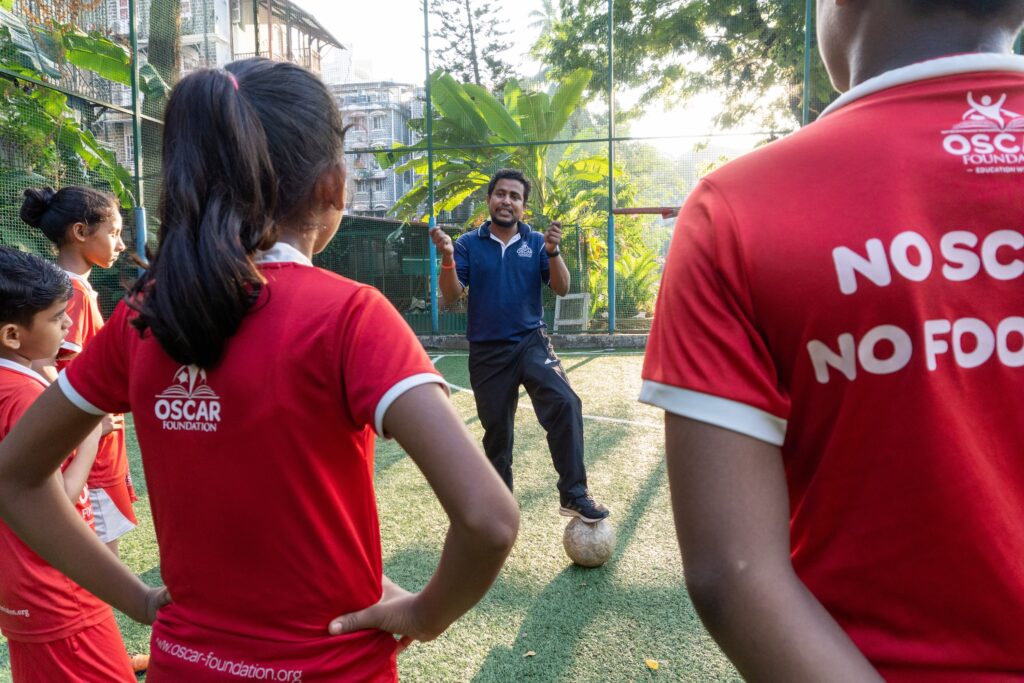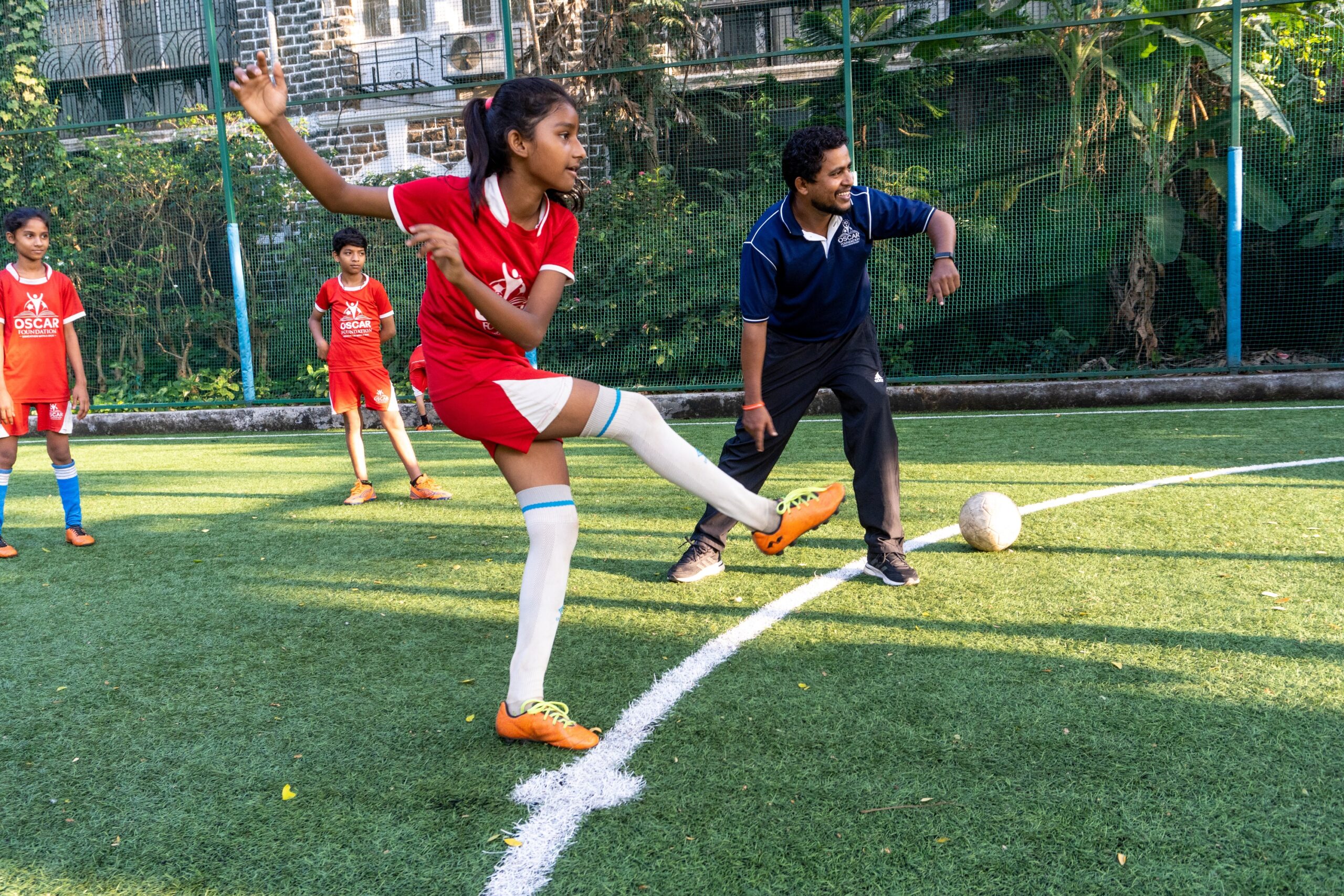I grew up in Ambedkar Nagar, a large slum (I prefer to use the term community) in Mumbai’s Cuffe Parade. Our homes barely have any space; no privacy and basic amenities are a luxury. Growing up, I spent most of my childhood with friends, loitering around in the streets and rarely engaged in anything productive. My family, like many others, were busy at work, so I lacked proper guidance, but I never considered it a negative environment because that was the only life I knew.
Close to our community are the Sassoon Docks, one of the oldest fishing markets in the city, which generates thousands of jobs for those living in communities like mine. As a child, I would find myself peeling and deveining prawns and helping at the docks to earn a quick buck. I also used to go to school but struggled with the basics. I didn’t really enjoy it and neither did my friends. Missing out on school was not something that bothered me. Money, on the other hand, was an attractive proposition. My family noticed this shift in my behaviour. I was going to movies; spending evenings at the beach and buying miscellaneous things. My parents grew worried about the path I was taking and intervened. This was the first time I was told about the importance of education. This had a huge impact on me. I continued my schooling, where I met sincere people focussed on their studies. They made me realise, unintentionally, that I had to improve to keep up. As I improved, I became more confident and took up sports, as well. I was most comfortable playing sports – Cricket, football and even just running around made me so happy. Education and sports were truly a great combination.
Meanwhile, our situation in the community changed little. The cycle of poverty continued because children barely made it through school. As I grew older, I witnessed early marriages, young mothers in the community, and men who fell prey to alcohol addiction. It was a familiar sight. I remembered school, the joy of playing, the power sport had on me, and the way it made me focus on my studies. These thoughts, in 2006, were the first seeds of OSCAR. I knew children would listen to me if I let them play. Everyone loves to play. More importantly, I used sports as a medium to interact with them. I would get their attention after sessions. We would have important conversations on the drawbacks of gambling, child marriage, addiction, anti-social behaviour; the positive effects of education and much more. The kids were receptive, they saw value in what I was doing. They told their parents and soon more kids showed up. I convinced parents to also send their girls and got the community involved to explain to them that sport was not a distraction but was something that encouraged a healthy lifestyle and improved their socialisation. Parents, once convinced, started supporting us. External stakeholders started supporting us. Like this, OSCAR grew, step by step and today, we have reached out to 20,000 children across the country.

To me, success is all about giving back to the community. What I learnt, I shared with others. Success for OSCAR is upgrading the mindset of the community. Trust me, it is not easy. We are community-led and community-run. Our programme is designed in such a way that so many give back. That is the beauty of OSCAR. Children who entered the programme are still with us 10 years later, contributing as mentors and community leaders and inspiring the next generation.
From the perspective of participants, I think success is all about completing one’s education. I cannot emphasise how important it is in our quest to break the cycle of poverty. Learning and exposing oneself to the right things at the right time is crucial, as is making the most of opportunities. We want our children to be happy, to do what they like and to focus on important things in their lives. I encourage you to find your feet in the world and gravitate towards your passion.
Some questions to ask yourself:
Are you happy with what you do?
Do you see yourself doing this in the future? Are you following your dream?
Are you making a difference?
Are you trying new things?
Don’t aspire to everything in this world – find what makes you happy. However, allways remember nothing is out of your reach if you give it your everything. Don’t compromise your happiness, embrace learning and make a positive impact as a human being.
About the Author:
Since 2006, Ashok Rathod has been involved in building and leading sports for development (S4D) initiatives that develop and provide quality football training with life skills to address the lack of access to sport for children, adolescents and youth in underserved communities. Ashok’s own lived experiences in the Ambedkar Nagar slum helped shape the community model for OSCAR Foundation. A recipient of many prestigious awards such as the CNN-IBN Real Hero Award and the Apollo Tyres Go the Distance Hero Award, Ashok is also an Ashoka Youth Venture Fellow (2007), Acumen Fellow (2021) and has spoken at many international and national leadership forums on the cause of education.


